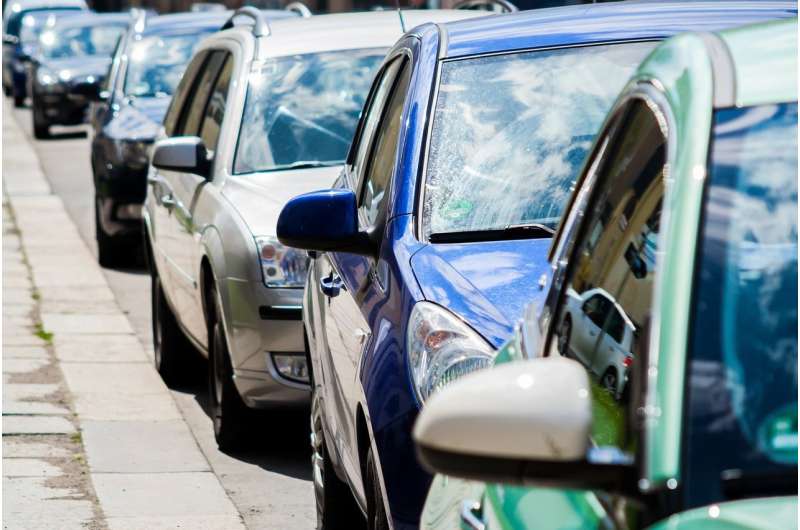Reserve your driving time to reduce traffic congestion

For his thesis, EPFL Ph.D. student Raphaël Lamotte studied rush-hour traffic congestion. He suggests implementing a system whereby commuters reserve time on a special traffic lane – like booking a seat on a flight – to help cities accommodate a growing number of car-sharing programs and, eventually, self-driving cars.
We've all sat frustrated in rush-hour traffic – either in the morning on the way to work, in the evening on the way home, or both. Some try to get around the problem by leaving a little earlier or a little later. That helps balance out traffic flows and create a certain equilibrium – which many transportation engineers and economists have been studying. Their goal is to better understand the mechanisms behind this equilibrium so that large infrastructure projects can be better designed and help reduce congestion.
Lamotte's thesis – supervised by Nikolas Geroliminis, a professor at EPFL's Urban Transport Systems Laboratory – investigates this equilibrium and weighs up different methods for reducing traffic congestion. He shows that most city traffic follows a first-in, first-out (FIFO) approach, but that a more efficient way to regulate traffic would be by introducing a reservation system for specific time slots.
Lamotte's first finding is that in a multidirectional road system – which is what's typically seen in and around cities – the drivers who have the longest commute are the ones who make the most effort to avoid rush-hour traffic. That's because they have a greater incentive to adjust their commute times and find the optimal time for leaving work or home based on how long it will take them to arrive at their destination.
Reserved lanes
He also found that one measure that has proven effective for reducing traffic congestion, in Stockholm for example, is a congestion charge. "Even a relatively low charge that varies with the time of day can change people's behavior," says Lamotte. However, such charges are not popular and not always feasible. Adopting one in Switzerland, for example, would require a constitutional amendment.
Based on the observation that traffic congestion results from lose-lose competition among drivers, Lamotte looked to other transportation methods for possible ideas. In air travel, passenger traffic is regulated by reservation systems that let travelers book seats until the plane is full. At that point, travelers have to take another flight. He suggests a similar system for commuter traffic using special reserved lanes. The allowed number of vehicles on the lanes would depend on the roads' capacity, and the demand for reservations would be used to determine which segments of road to set aside for the system. Commuters who don't want to use the system would be free to use the regular road lanes whenever they want – but they might find those lanes congested.
Guiding public policy
"Today such a system would be hard to implement," says Lamotte. But he's already looking ahead to the emergence of new modes of transport. "Car-sharing systems are becoming increasingly common, and self-driving cars are not far off. Commuters will soon start getting used to reserving a vehicle ahead of time. Then it will be just a small step to reserving a time slot as well," he adds. He hopes his thesis will help inform policymakers' decisions when it comes to long-term urban planning. "It's important to be aware that this competition for commuting times bears a cost, and that intelligently designed traffic systems can help cut that cost," says Lamotte.
Provided by Ecole Polytechnique Federale de Lausanne




















